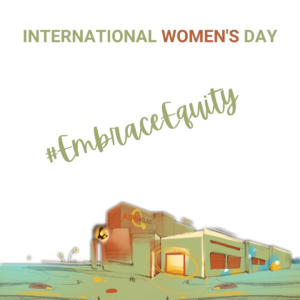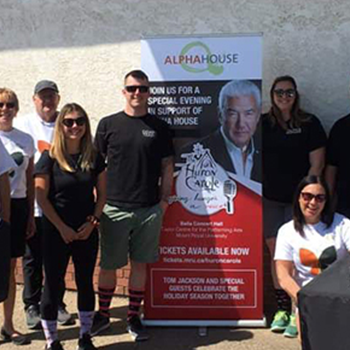Women Experiencing Homelessness
March 8, 2023 | Events In The News National Event Days

First observed in 1911, International Women’s Day celebrates women’s achievements, recognizes challenges faced by women and girls globally, and raises awareness about the discrimination women still face to this day.
Homelessness is an experience any race, gender, or nationality can go through and it creates specific vulnerabilities for anyone who finds themselves in such a situation. It is also true that people experience homelessness differently and that women are among the most vulnerable subpopulations of unhoused individuals. The oppression women face is multifaceted and complex and is firmly ingrained in the society in which we live both culturally and systemically. As a result, women experience the discrimination, challenges, and dangers of being unhoused in specific and, often, more extreme ways.
Homelessness is not always visible; hidden homelessness is the term often applied to a subset of the population whose current housing situation is not stable i.e. when an individual has temporary housing but lacks safety, security and any assurance of long-term stability within their housing. Women are among the largest group captured in the term “hidden homelessness,” which often encompasses a significant number of women victimized by domestic violence. The reason it is categorized as hidden is because those experiencing this form of homelessness are less likely to access social services and housing resources, less likely to get support when they do access services, and less likely to be fully represented in studies, policy, and social services. Women make up the majority of victims of toxic partner relationships, where they are reliant on an abusive partner for basic needs such as housing and food. Abusers will use violence and manipulation in an attempt to control women by isolating them, limiting their income, and cutting them off from their support systems. Domestic violence is the leading cause of homelessness for women.
Challenges and Dangers
Women experiencing homelessness are more likely to become pregnant than women with stable housing, due to multiple factors such as sexual assault, lack of social supports, and a lack of safe spaces. Substance use – a trauma response often used as a coping mechanism – and lack of a nutritious diet – a stark reality for those living on the street – can lead to severe health complications for pregnant women, putting the health and safety of both the mother and baby at risk. Being the primary caregiver for their children makes accessing shelter and other housing services even more difficult and, in fact, many domestic violence and women’s shelters are forced to turn people away due to capacity and funding constraints.
Menstruation, and the lack of feminine hygiene supplies is another persistent and difficult challenge to overcome for vulnerable women, compounded by obstacles those on the street face related to access to hygiene, clean clothing, and supplies, further contributing to the trauma created by trying to survive and meet basic needs.
The City has partnered with the Calgary Public Library and Youth Central’s Mayor’s Youth Council, launched the Free. Period. Program. A program that offers free pads and tampons in select city and library facilities. You can view an updated list of locations here.
Human trafficking is a significant danger for women living on the streets. Human traffickers prey on individuals experiencing homelessness and other marginalized populations. There are multiple factors that make this population a target for human traffickers including substance use, lack of a support system, and the human desire for what seems like opportunity for stability and safety. Victims of trafficking are most often left financially destitute, isolated and without housing, where they are susceptible to further exploitation.
Overall, women are subject to higher rates of abuse, including physical, sexual, and emotional abuse. Abuse is further exacerbated for Indigenous women, who are three times more likely to experience violence than non-Indigenous women. The violence that women face is systemic, with most vulnerable women experiencing violence and/or assault in their childhoods or adult lives prior to homelessness. Recall that domestic violence is the leading cause for homelessness among women.
Long-term housing with trauma-informed supports, access to healthcare, and employment opportunities are critical resources desperately needed to improve the situation of women and girls globally.
Supporting Vulnerable Women
Alpha House operates Permanent-Supportive Housing (PSH) programs for individuals transitioning from chronic homelessness towards housing stability; two of our buildings are specifically dedicated to housing vulnerable women. The programs provide 24/7 wrap-around supports, with staff trained to support individuals with active substance use, navigate the unique circumstances of transitioning from homelessness to long-term housing. Our women-only buildings provide increased safety for women to live at home without fear of violence and offer both a trauma and gender-informed care lens that seeks to reduce traumatization and recognize the specific situations and past traumas these women have faced. Access to safe spaces is critical to supporting those we serve in a trauma-informed way.
Alberta Women’s Shelters are facing increased demand and are struggling to meet the need. For more information on how you can support local women’s shelters, connect with The Alberta Council of Women’s Shelters (ACWS)
(https://www150.statcan.gc.ca/n1/pub/85-002-x/2011001/article/11439-eng.pdf)
https://tgpdenver.org/file_download/inline/d5103ee6-5609-4f38-80b8-5aa0faa7c213
